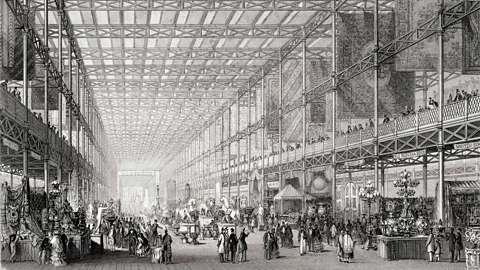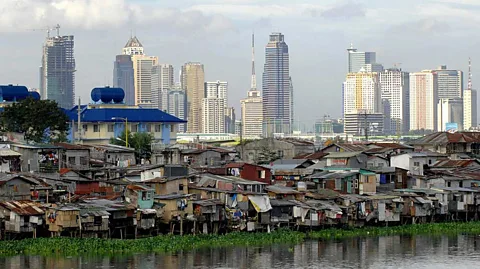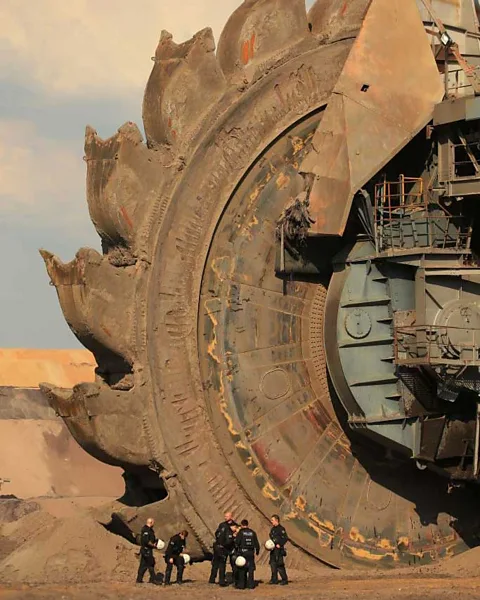風蕭蕭_Frank
以文會友資本主義的演變 :下一個階段會是什麽樣
Why the next stage of capitalism is coming
將近 250 年前,經濟學家和哲學家亞當·斯密 (Adam Smith) 寫了《國富論》,書中描述了一種全新的人類活動形式的誕生:工業資本主義,其結果將是他和他的同時代人無法想象的財富積累。
資本主義推動了工業、技術和綠色革命,重塑了自然世界,改變了國家在社會中的角色。在過去兩個世紀中,它使無數人擺脫了貧困,顯著提高了生活水平,並帶來了從根本上改善人類福祉的創新,並使登月和在互聯網上閱讀本文成為可能。
然而,這個故事中也有陰暗麵。近年來資本主義的缺點越來越明顯。個人短期利益優先,有時意味著社會和環境的長期福祉受損——尤其是在新冠大流行和氣候變化挑戰全球之際。世界各地的政局動蕩和社會兩極分化表明,對現狀的不滿日益加劇。營銷和公關公司愛德曼(Edelman)2020 年一項調查結果顯示,全球 57% 的人認為“今天的資本主義對世界弊大於利”。
事實上,如果你用不平等和環境破壞等標準來衡量,“西方資本主義近幾十年的表現一直存在嚴重問題”,經濟學家邁克爾·雅各布斯(Michael Jacobs)和瑪麗安娜·馬祖卡托(Mariana Mazzucato)在他們合著的《重新思考資本主義》(Rethinking Capitalism)一書中寫道。
不過,這並不意味著沒有解決方案。 雅各布斯和馬祖卡托認為,“西方資本主義未必注定要失敗,但確實需要對它重新思考”。
那麽,我們心目中的資本主義會繼續以當前的狀態一直存在嗎?它是否可能?
它為人類福祉貢獻良多,但遠非完美。我們所理解、知道的資本主義會長久保持現狀嗎?抑或有另一種未來,演變成新的狀態?

資本主義的過去
圍繞資本主義這個主題的書籍和文字已經汗牛充棟,所以對它的研究難以麵麵俱到。但我們能夠做到的是根據資本主義的興起來探索、預測它未來的發展方向。顯然,資本主義並不始終像今天這樣運作,尤其是在西方。
在 9 - 15 世紀,西方處於專製君主製和教會統治之下。隨著人們爭取個人自由權益的勢頭逐漸增強,這類體製開始衰敗,而這種狀況催生了一種更注重個人取向的經濟製度 —— 資本主義,因為它允許私有財產權、個人選擇、企業家精神和有利於創新的靈活性。它還支持注重個人政治自由的民主作為治理體係、社會製度。
這種向更大的個人自由轉變的潮流改變了社會契約。以前,許多資源(土地、食物和保護)由當權者提供,以換取公民的重大貢獻(例如,奴工、低薪苦役、高稅賦和絕對的忠誠)。在資本主義下,人們降低對執政當局的期望,以求換取更大的公民自由,包括個人、政治和經濟自由。

20世紀的資本主義
然而,資本主義在接下來的幾個世紀裏將發生重大變化——尤其是在 20 世紀下半葉。第二次世界大戰後,經濟政策智囊團朝聖山學社(Mont Pelerin Society)成立,其宗旨是應對西方麵臨的挑戰,重點放在捍衛開放社會、法治、言論自由和自由市場經濟政策的政治價值觀;這些構成了古典自由主義的核心原則。
古典自由主義最終催生了“供給學派”。這是一種經濟學理念,即減稅和對自由市場監管最小化能夠帶來最大限度的經濟增長,從而提高所有人的生活水平。在 1980 年代,政治上新興的新自由主義和經濟上的供給學派一同在美國和許多歐洲國家被奉為優先。
這種新出現的資本主義壓力推動了全球經濟加速增長,也使許多人擺脫了絕對貧困。但與此同時,批評者指出,對於諸如整修破敗的公共基礎設施、改善教育和降低健康風險之類公共服務領域的政治投資,減稅和放鬆商業監管等信條並沒有起什麽作用。
也許,最重要的是, 20 世紀後期資本主義在許多發達國家導致了貧富兩極之間的財富差距,這個貧富差距的衡量指標是基尼係數。有些國家的貧富差距不斷擴大,美國的情況尤其明顯。
自 1980 年以來,美國最貧窮的人實際收入沒有增長,而處於頂層的超級富豪收入每年增長約 6%。世界上最富有的億萬富翁幾乎都生活在美國,他們積累了驚人的財富,而與此同時,自世紀之交以來,美國家庭收入中位數僅僅略有上升。

貧富差距的影響可能超過一些政客和企業精英願意相信的程度。加利福尼亞州立大學富勒頓分校經濟學教授丹尼斯·斯坦利(Denise Stanley)說,資本主義可能使全世界數百萬人擺脫了絕對貧困,但不平等可能會腐蝕社會。
她解釋說,“絕對貧困的意思是普通人……每人每天有 4 美元收入。這是個門檻”,但從長遠來看,相對貧困會導致社會失衡。即使經濟持續增長,收入不平等和工資增長的停滯也會使人們缺乏安全感,因為這會導致他們在經濟生活中的相對地位下降。
行為經濟學家已經表明,“與其他人相比,我們的社會地位、我們的幸福感更多來自於相對度量和財富分配,而不是絕對度量。如果這個論斷正確,那麽資本主義就有問題,”斯坦利說。
根據愛德曼報告(Edelman report),不平等加劇導致“人們對機構的信任度降低,並體驗到不公正感”,而對人們生活可能產生更深的影響。經濟學家安妮·凱斯(Anne Case)和安格斯·迪頓爵士(Sir Angus Deaton)在他們合著的《絕望之死和資本主義的未來》一書中指出,當前形態的資本主義正在摧毀工人階級許多人的生活。他們寫道,“在過去二十年裏,因自殺、吸毒過量和酗酒導致的絕望死亡人數急劇上升,現在每年奪去數十萬美國人的生命”。
2007-2008 年的金融危機加深了這些問題。這場危機是由過度放鬆管製引發的,對發達國家勞工階層的打擊尤其嚴重。美國消費者金融保護局 (CFPB) 第一任主任理查德·科德雷 (Richard Cordray) 表示,危機爆發後政府對大銀行的救助引發了不滿,“助長了我們在過去十年中目睹的……政治兩極化的興起”。他是《守門人:通過保護消費者來拯救我們的家庭、經濟和民主》一書作者。

21世紀的資本主義
自由民主製度目前可能正處於一個轉折點;放眼全球,公民正在以更強的政治力度挑戰現有資本主義規範。
例如,紐約長島大學政治學教授J·帕特利斯·麥克謝利( J Patrice McSherry)在智利觀察到這種變化。她說: “社會動員始於 2019 年 10 月地鐵票價的上漲,引發了廣泛的抗議活動,吸引了 100多 萬人參加示威活動。”
“智利的社會運動暴露了憤懣不滿的深層根源:根深蒂固且日益嚴重的不平等、不斷上漲的生活成本,以及這個世界上最新的自由主義國家之一的極端私有化。”
這些不滿可以追溯到 20 世紀後期,當時智利的威權政府嚐試憲法改革,以此“將獨裁統治的經濟和政治統治製度化,確立了一個將國家在社會和經濟領域中的作用消除殆盡的新自由主義框架。它限製政治參與,賦予了[政治]權利不成比例的權力,並為武裝部隊設置了監護人的角色,”麥克謝利在為非營利組織“北美洲拉丁大會”撰寫的一篇文章中指出;該組織追蹤拉美地區的時局動態。
同樣,2018 年法國興起的“黃背心”運動最初的導火線是通勤者燃料成本上漲,但迅速擴大到類似於智利的社會怨懟、生活成本上漲、日益加劇的不平等,以及敦促政府不再無視普通市民需求等訴求。
在美國,催生特朗普主義的政治運動可以說是由經濟不平等和意識形態推動的。在那些因全球化而淪為輸家的選民中,特朗普政府更封閉的貿易政策贏得了廣泛的政治支持,包括退出跨太平洋夥伴關係協定,以及對進口到中國、印度、巴西和阿根廷的商品和服務征收報複性關稅。甚至連歐洲、加拿大和墨西哥等美國的傳統盟友也未能幸免,成為這一議程所針對的目標。

德國Baker McKenzie 國際貿易業務負責人、世界經濟論壇全球青年領袖阿納希塔·湯姆斯(Anahita Thoms)說,雖然對當前形式的資本主義不利因素的一種反應是各國采取防禦姿態,尋求通過盡量減少外部聯係來保護自己,但保護主義“是短視的,尤其在貿易領域”。
“雖然它可能帶來一些暫時的好處,但從長遠來看,它會危及整個全球經濟,並有可能破壞數十年的經濟進步。保持對投資友好的開放市場至關重要,”湯姆斯說。
政府在21 世紀麵臨的一個核心挑戰是如何在全球貿易的長期利益和全球化導致的低工資或失業對社區造成的短期損害之間取得平衡。民主製度下,經濟無法完全脫離求職、經濟適用房、教育、醫療保健和清潔環境等大多數人的需求。正如智利、黃背心和特朗普主義運動所顯示的那樣,許多人要求改變現有製度,以滿足這些需求,而不僅僅是謀求更多私人利益。
總而言之,也許到了重新思考資本主義的社會契約的時候了——隻有這樣它才能更加包容超越個人權利和自由的更廣泛的利益。這並非沒有可能。資本主義過去曾經曆過演變,為了能延續至更長久的未來,它可以繼續演變。
資本主義的未來
近年來,出現了各種旨在改寫資本主義社會契約的想法和建議。它們有一個共同點,即企業的成功需要更多元的衡量標準,而不單是利潤和增長。

在商業領域,所謂“合乎道義”的品牌衍生出“自覺資本主義”(Conscious Capitalism);在政策方麵,英格蘭銀行和梵蒂岡都提倡“包容性資本主義”(Inclusive Capitalism),主張利用“資本主義向善”;在可持續性方麵,有“甜甜圈經濟學”概念,這是經濟學家和作家凱特·拉沃斯(Kate Raworth)提出的一個理論,認為可以在不突破社會和地球環境界限的同時保持經濟的繁榮增長。
還有喬納森·波裏特(Jonathan Porritt)在《把世界當真的資本主義》(Capitalism As If The World Matters)一書中提出的“五種資本”模式:他主張將人力資本的五個支柱 —— 自然、人力、社會、製造和金融 —— 整合到現有的經濟模型中。
企業開始接受“五種資本”,一個具體例子是 “B 公司運動”(B-Corporation Movement)。獲得認證的公司簽約承擔法律義務,承諾在決策時要考慮“他們的決定對公司員工、客戶、供應商、社區和環境的影響”。已經加入這個行列的大公司包括達能、巴塔哥尼亞和 Ben & Jerry's(由聯合利華擁有)等。
這種方式正在成為主流。2019 年,180 多家企業的首席行政官發布重新定義企業宗旨的聲明。沃爾瑪、蘋果、摩根大通、百事可樂等大公司 CEO 首次承認,必須重新定義企業在社會和環境中的角色。
聲明說,企業必須承擔的責任不僅僅是為股東帶來利潤,還必須投資於員工,並為推動波立特資本模型中的人力、自然和社會要素的改善做出貢獻,而不隻是盯著金融資本。
百思買(Best Buy)執行董事長休伯特·喬利(Hubert Joly)在接受雅虎財經關於資本主義未來的采訪時說:“從 1980 年代到 2010 年這30 年裏,我們始終隻盯著利潤這個唯一的焦點,過度的關注並由此帶來了很多這些問題。如果能對工商業加以重建,就有可能重建資本主義......我認為這是可以做到的,也必須做到。”

未來方向
三十多年前,聯合國布倫特蘭委員會(Brundtland Commission)在題為《我們共同的未來》報告中寫道,有充分證據表明社會和環境影響是相關的,需要納入發展模式。顯然,這些問題也必須在支撐資本主義的社會契約中加以考慮,以使其更具包容性、整體性,並與基本的人類價值觀相結合。
歸根結底,應該記住一點,資本主義自由民主國家的公民並非束手無策,無能為力。作為一個集體,他們可以支持與自己信念相符的公司,並不斷要求新的法律和政策以推動公司競爭格局的改變,從而促使它們改進自己的業務行為。
當亞當·斯密在 1776 年研究新生的工業資本主義時,尚無法預見它將在多大程度上改變我們今天的社會。因此,我們可能同樣無法預見兩個世紀之後的資本主義會是什麽樣子。
但這並不意味著我們不應該問這個問題:資本主義如何能夠在短時間內進化得更好。資本主義和我們所在星球的未來取決於它。
本文作者馬修·威爾彭·金(Matthew Wilburn King)是美國科羅拉多州博爾德的一名國際事務顧問,環保主義者,也是 Common Foundation 總裁兼董事會主席。
Why the next stage of capitalism is coming
It's done so much for human well-being, but it's far from perfect. Will capitalism as we know it evolve into something new?
Nearly 250 years ago, the economist and philosopher Adam Smith wrote The Wealth of Nations, in which he described the birth of a new form of human activity: industrial capitalism. It would lead to the accumulation of wealth beyond anything that he and his contemporaries could have imagined.
Capitalism has fuelled the industrial, technological and green revolutions, reshaped the natural world and transformed the role of the state in relation to society. It has lifted innumerable people out of poverty over the last two centuries, significantly increased standards of living, and resulted in innovations that have radically improved human well-being, as well as making it possible to go to the Moon and read this article on the internet.
However, the story is not universally positive. In recent years, capitalism's shortcomings have become ever-more apparent. Prioritising short-term profits for individuals has sometimes meant that the long-term well-being of society and the environment has lost out – especially as the world has faced the Covid-19 pandemic and climate change. And as political unrest and polarisation around the world have shown, there are growing signs of discontent with the status quo. In one 2020 survey by the marketing and public relations firm Edelman, 57% of people worldwide said that "capitalism as it exists today does more harm than good in the world".
Indeed, if you judge by measures such as inequality and environmental damage, "the performance of Western capitalism in recent decades has been deeply problematic", the economists Michael Jacobs and Mariana Mazzucato wrote recently in the book Rethinking Capitalism.
However, that does not mean there are no solutions. "Western capitalism is not irretrievably bound to fail; but it does need to be rethought," argue Jacobs and Mazzucato.
So, will capitalism as we know it continue in its current form – or might it have another future ahead?
Capitalism has spawned thousands of books and millions of words, and so it would be impossible to explore all its facets. That said, we can start to understand where capitalism could be headed in the future by exploring where it began. This tells us that capitalism hasn't always worked the way it does today – particularly in the West.
Between the 9th and 15th Centuries, autocratic monarchies and ecclesiastical hierarchies dominated Western society. These systems began to fall away as people increasingly asserted their right to individual liberty. This push for a greater focus on the individual favoured capitalism as an economic system because of the flexibility it allowed for private property rights, personal choice, entrepreneurship and innovation. It also favoured democracy as a governing system for its focus on individual political freedom.
 In 1851, London hosted the "Great Exhibition Of The Works Of Industry Of All Nations" (Credit: Getty Images)
In 1851, London hosted the "Great Exhibition Of The Works Of Industry Of All Nations" (Credit: Getty Images)
The shift toward greater individual liberty changed the social contract. Previously, many resources were provided by those in power (land, food and protection) in exchange for significant contributions from citizens (for instance, from slave labour to hard labour with little pay, high taxes and unquestioning loyalty). With capitalism, people expected less from governing authorities, in exchange for greater civil liberties, including individual, political and economic freedom.
But capitalism would evolve significantly over the following centuries – and particularly so during the second half of the 20th Century. After World War Two, the Mont Pelerin Society, an economic policy think tank, was founded with the goal of addressing the challenges confronting the West. Its specific focus was on defending the political values of an open society, rule of law, freedom of expression and free market economic policies – central tenents of classical liberalism.
Its ideas eventually gave rise to "supply-side economics". This was the belief that lower taxes and minimal regulation of the free market would lead to the most economic growth – and, therefore, better lives for all. In the 1980s, coupled with the emergence of political neoliberalism, supply-side economics became a priority for the US and many European governments.
This newer strain of capitalism has led to increased economic growth worldwide, while lifting a substantive number of people out of absolute poverty. But at the same time, critics argue that its tenets of lowering taxes and deregulating business has done little to support political investment in public services, such as crumbling public infrastructure, improving education and mitigating health risks.
Perhaps most significantly, in many developed nations late-20th Century capitalism has contributed to a significant gap between the wealth of the richest and poorest people, as measured by the Gini Index. And in some countries, that gap is growing ever-wider. It's particularly stark in the US, where the poorest individuals have seen no real income growth since 1980, while the ultra-rich at the top have seen their income grow by around 6% per year. The richest billionaires in the world are almost all based in the US, and have amassed staggering fortunes, while at the same time the median US household income has risen only modestly since the turn of the century.
 If the gap grows between rich and poor, then instability can follow (Credit: Jay Directo/Getty Images)
If the gap grows between rich and poor, then instability can follow (Credit: Jay Directo/Getty Images)
The inequality gap may matter more than some politicians and corporate leaders would like to believe. Capitalism may have lifted millions of people around the world out of absolute poverty, but inequality can be corrosive within a society, says Denise Stanley, a professor of economics at California State University-Fullerton. "Absolute poverty is basically folks are able to get… $4 per day per person. It’s a threshold measure," she explains, but relative poverty can unbalance a society over the long-term. Even if the economy is growing, income inequality and stagnant wages can make people feel less secure as their relative status in the economy diminishes. Behavioural economists have shown that "our status compared to other people, our happiness, is derived more by relative measures and distribution then by absolute measures. If that’s true then capitalism has a problem," says Stanley.
As a result of rising inequality, "people have less trust in institutions and experience a sense of injustice", according to the Edelman report. But the impact on people's lives may go deeper. Capitalism in its current form is destroying the lives of many working-class people, argue the economists Anne Case and Sir Angus Deaton in their book Deaths of Despair and the Future of Capitalism. Over "the past two decades, deaths of despair from suicide, drug overdose, and alcoholism have risen dramatically, and now claim hundreds of thousands of American lives each year", they write.
The 2007-2008 financial crisis exacerbated these problems. The crisis was brought on by excessive deregulation, and hit the working class in developed nations particularly hard. The subsequent bailouts of big banks led to resentment and "helped fuel the rise of the… polarised politics we’ve seen over the last decade", according to Richard Cordray, the first director of the US Consumer Financial Protection Bureau (CFPB) and author of Watchdog: How Protecting Consumers Can Save Our Families, Our Economy, and Our Democracy.
Liberal democracies may now be at an inflection point, where citizens contest today’s capitalist norms with greater political intensity worldwide.
J Patrice McSherry, a professor of political science at Long Island University in New York, has observed this change in Chile, for instance. "Social mobilisation began with a rise in subway fares in October 2019, sparking broad-based protests that convoked more than one million people in demonstrations," she says. "The social movement has exposed the deep sources of discontent in Chile: entrenched and growing inequality, the ever-rising cost of living, and extreme privatisation in one of the world’s most neoliberal states."
Those grievances can be traced back to the late 20th Century, when Chile's authoritarian government introduced constitutional reforms that "institutionalised the economic and political domination of the dictatorship and enshrined a neoliberal framework that erased the role of the state in social and economic areas. It restricted political participation, gave the [political] right disproportionate power, and installed a tutelary role for the armed forces," writes McSherry in an article for the North American Congress on Latin America, a non-profit organisation which tracks trends in the region.
 Women wearing a yellow vest (gilet jaune) stage a protest in France (Credit: Jean-Francois Monier/Getty Images)
Women wearing a yellow vest (gilet jaune) stage a protest in France (Credit: Jean-Francois Monier/Getty Images)
Similarly, the Yellow Vest movement that started in France in 2018 was initially about the increased cost of fuel for commuters, but quickly broadened to include grievances similar to those in Chile, the cost of living, growing inequality, and a demand for government to stop ignoring the needs of ordinary citizens.
And in the US, the political movement which spawned Trumpism is arguably fuelled by economic inequality just as much as ideology. Among voters who have lost out due to globalisation, the Trump administration won widespread political support for its more closed approaches to global trade, including withdrawal from the Trans-Pacific Partnership and retaliatory tariffs on Chinese, Indian, Brazilian and Argentinian goods and services imported into the US. Even the US's allies were targeted by this agenda, including Europe, Canada, and Mexico.
While one response to the downsides of capitalism in its current form is for nations to take a defensive posture, seeking to protect themselves by minimising external ties, protectionism "is short-sighted, particularly when it comes to trade," according to Anahita Thoms, head of Baker McKenzie's International Trade Practice in Germany and Young Global Leader of the World Economic Forum. "While it may bring some temporary benefits, in the long-term it endangers the global economy as a whole and threatens to undo decades of economic progress. It is crucial to maintain investment-friendly, open markets," says Thoms.
A central challenge for governments in the 21st Century will be to work out how to balance these long-term benefits of global trade with the short-term harms that globalisation can bring to local communities affected by low wages or unemployment. Economies cannot become completely divorced from the demands of democratic majorities who seek jobs, affordable housing, education, healthcare and a clean environment. As the Chilean, Yellow Vest and Trumpist movements show, many people are asking for change to the existing system so that it accounts for these needs, rather than only enriching private interests.
In sum, it may be time to reconsider the social contract for capitalism, so that it becomes more inclusive of a broader set of interests beyond individual rights and liberties. This is not impossible. Capitalism has evolved before, and if it is to continue into the longer-term future, it can evolve again.
The future of capitalism
In recent years, various ideas and proposals have emerged that aim to rewrite capitalism's social contract. What they have in common is the idea that businesses need more varied measures of success than simply profit and growth. In business, there's "conscious capitalism", inspired by the practices of so-called "ethical" brands. In policy, there's "inclusive capitalism", advocated by both the Bank of England and The Vatican, which advocates harnessing "capitalism for good". And in sustainability, there's the idea of "doughnut economics", a theory proposed by economist and author Kate Raworth, which suggests that it's possible to thrive economically as a society while also staying within social and planetary boundaries.
Then there's the "Five Capitals" model articulated by Jonathan Porritt, the author of Capitalism As If The World Matters. Porritt calls for the integration of five pillars of human capital – natural, human, social, manufactured, and financial capital – into existing economic models.
 Capitalism's in-built incentives may need to expand to embrace sustainability (Credit: David Young/Getty Images)
Capitalism's in-built incentives may need to expand to embrace sustainability (Credit: David Young/Getty Images)
One tangible example of where companies are beginning to embrace the Five Capitals is the B-Corporation movement. Certified companies sign up to a legal obligation to consider "the impact of their decisions on their workers, customers, suppliers, community, and the environment". Their ranks now include major corporations such as Danone, Patagonia, and Ben & Jerry's (which is owned by Unilever).
This approach has become increasingly mainstream, reflected in a 2019 statement released by over 180 corporate CEOs redefining "the purpose of a corporation". For the first time, CEOs representing Wal-Mart, Apple, JP Morgan Chase, Pepsi, and others acknowledged that they must redefine the role of business in relation to society and the environment.
Their statement proposes that companies must do more than deliver profits to their shareholders. In addition, they must invest in their employees and contribute to the improvement of the human, natural and social elements of capital that Porritt refers to in his model, rather than the sole focus on financial capital.
In a recent interview with Yahoo Finance on the future of capitalism, the executive chairman of Best Buy, Hubert Joly, said that "what has happened is that for 30 years, from the 1980s to 10 years ago, we’ve had this singular focus on profits that has been excessive and has caused a lot of these issues. We need to unwind a bit of these 30 years. If we have a refoundation of business, it can be a refoundation of capitalism as well... I think this can be done, this has to be done."
A new direction
More than three decades ago, the United Nations Brundtland Commission wrote in "Our Common Future" that there was ample evidence that social and environmental impacts are relevant and need to be incorporated into development models. It is now obvious that these issues must also be considered within the social contract underpinning capitalism, so that it is more inclusive, holistic and integrated with basic human values.
Ultimately, it is worth remembering that citizens in a capitalist, liberal democracy are not powerless. Collectively, they can support companies aligned with their beliefs, and continuously demand new laws and policies which transform the competitive landscape of corporations so that they might improve their practices.
When Adam Smith was observing nascent industrial capitalism in 1776, he could not foresee just how much it would transform our societies today. So it follows that we might be similarly blind to what capitalism could look like in another two centuries. However, that does not mean we should not ask how it might evolve into something better in the nearer term. The future of capitalism and our planet depend on it.
* Matthew Wilburn King is an international consultant and conservationist based in Boulder, Colorado and the president and chairman of the Common Foundation. Connect with him on Facebook or LinkedIn.




